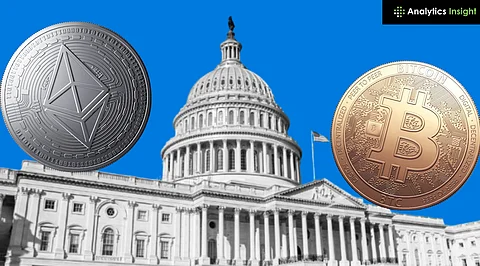

The United States Senate voted 68-30 on June 17 to approve the Guiding and Establishing National Innovation for US Stablecoins (GENIUS) Act, marking a legislative first for digital assets. This is the first time either chamber of Congress has passed legislation specifically addressing stablecoins. The vote follows a cloture motion passed by the same margin last week, with 18 Democrats joining nearly all Republicans in favor.
The GENIUS Act permits the existence of regulatory frameworks that allow private entities to issue stablecoins. Although this provision gained support, it was accompanied by criticisms. Senator Josh Hawley (R-MO) voted against the bill, objecting to providing improper benefits to big tech companies.
Hawley proposed placing an amendment that would limit the actions of tech companies in issuing stablecoins, but the Senate leadership refused to include it in the final version. Other Republican senators expressed frustration over the lack of an open amendment process, which had initially been promised.
Senator Mark Warner (D-VA), one of the bill’s key supporters, acknowledged the challenges faced during negotiations, especially those linked to the Trump family’s involvement in the sector. Despite political tension, the bill advanced with bipartisan support, reflecting a growing consensus on the need to regulate stablecoin issuance in the United States.
The Senate's clearance of the GENIUS Act has brought attention to the House of Representatives. Members of the lower house are divided on the next course of action. While the Senate aims for quick passage, House leaders are contemplating combining GENIUS with digital asset market structure reforms like the Digital Asset Market Clarity (CLARITY) Act.
According to Representative Warren Davidson (R-OH), the House may prefer a comprehensive approach that combines stablecoin regulation, a framework for defining securities and commodities, and a ban on central bank digital currencies (CBDCs). The CLARITY Act has already advanced through committee reviews, while the Senate has yet to propose its counterpart.
House Financial Services Committee Chair French Hill (R-AR) reiterated that stablecoins should have a parallel market framework alongside stablecoin regulation. He claimed that stablecoin operations depend upon a more comprehensive digital property framework. Any amendments made by the House on the GENIUS bill may prompt further negotiation with the Senate, leading to additional delays in its approval.
Also Read: Bitcoin & Stablecoins: What's The Next Big Milestone to Watch?
One immediate market impact of the GENIUS vote is its potential benefit to U.S.-based Circle, the issuer of the USDC stablecoin. Circle’s stock on Nasdaq fell by 1.3% at close but rebounded nearly 3% in after-hours trading following the Senate approval. Circle executives publicly welcomed the bill’s progress.
Tether, the issuer of the world’s largest stablecoin USDT, responded less directly. CEO Paolo Ardoino tweeted only the word “GENIUS” alongside emojis, offering no detailed statement. Tether has previously considered launching a U.S.-compliant stablecoin to reduce regulatory pressure and enhance transparency.
Scott Bessent, Secretary of the U.S. Treasury, estimated that the GENIUS Act would boost the stablecoin market to a $3.7 trillion valuation by 2030. This amount represents an extreme increase from the current levels, where the total stablecoin market cap currently sits at $261.5 billion.
